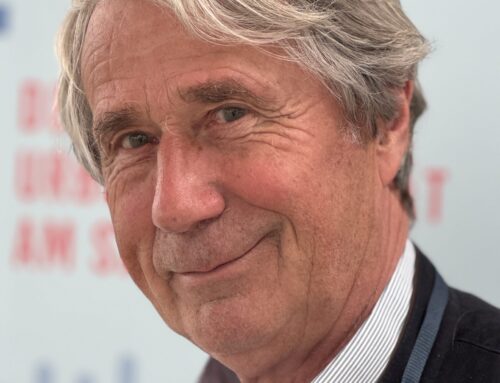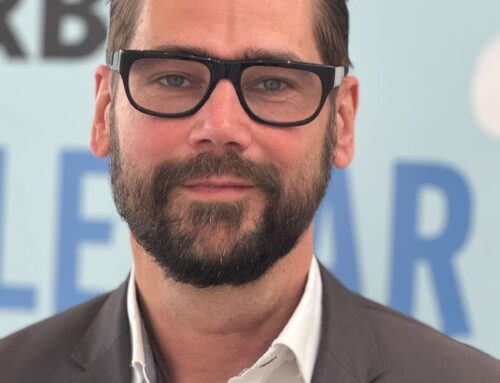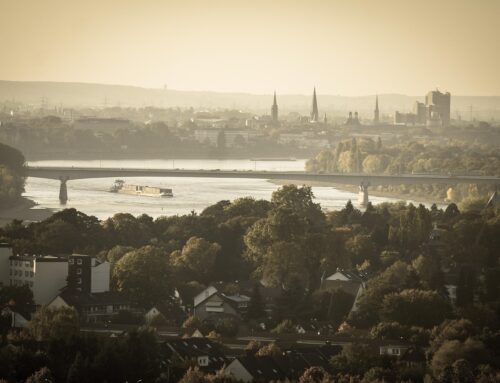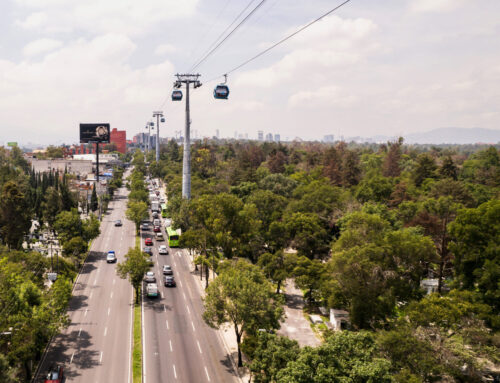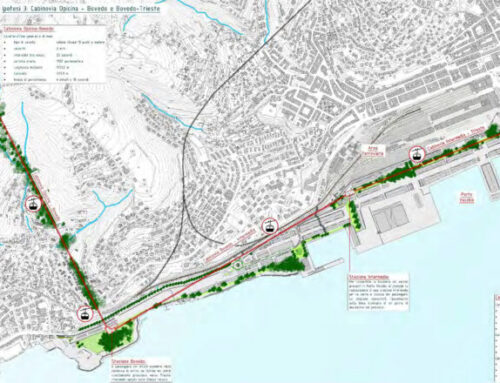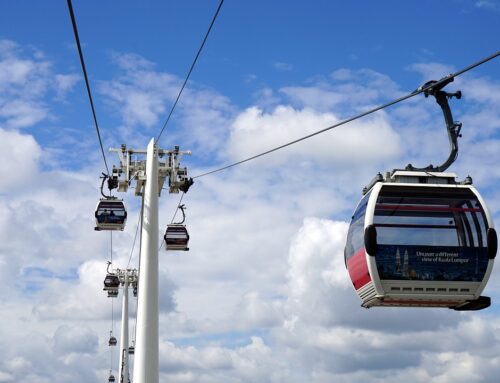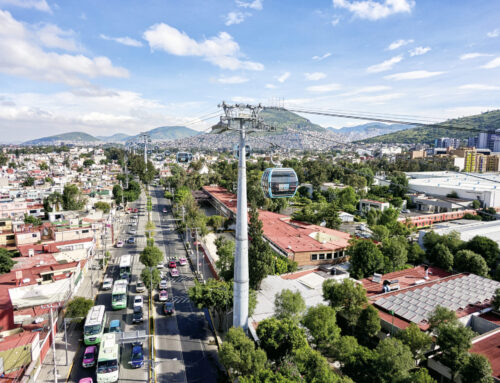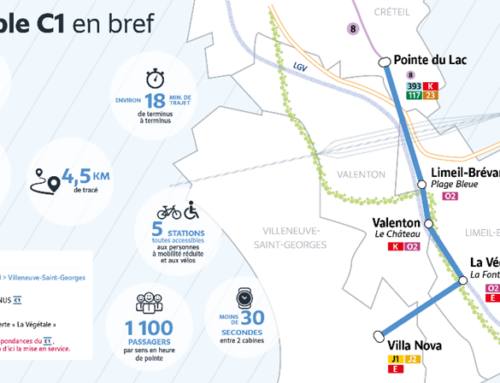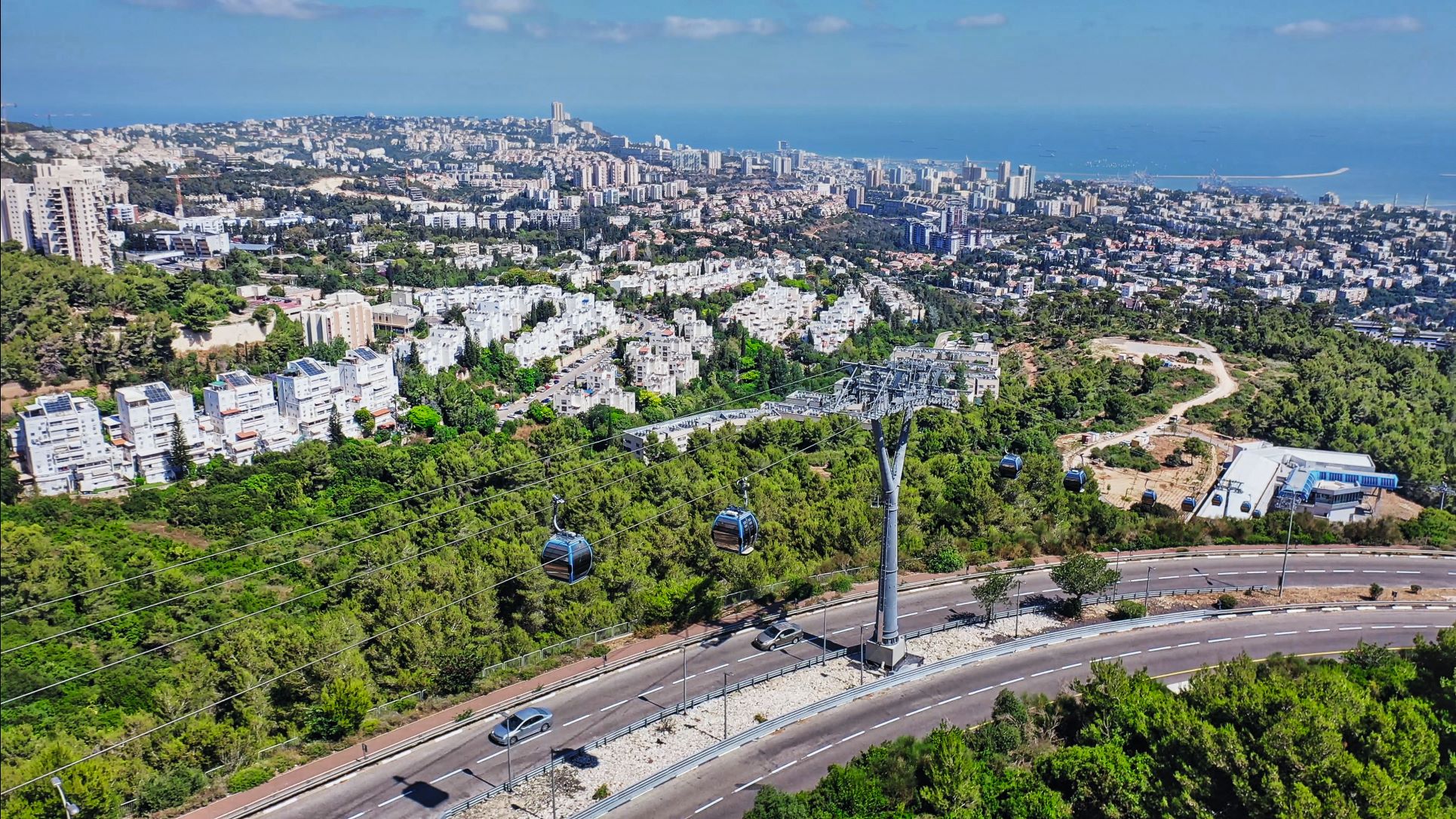
SI-Urban
ropeway to the University of Haifa
As part of the public transport network, the gondola means a time saving of up to 25 minutes for passengers and gives them a direct route to their workplaces and education facilities.
During their working visit to Haifa, Minister of the Economy Margarete Schramböck and Foreign Minister Alexander Schallenberg took a trip on the ropeway and were able to experience the comfort of this new mode of public transport at first hand.
The new ropeway to the University of Haifa is Israel’s first urban gondola and forms an integral part of the public transport network. It incorporates six stations – three of which are being used for boarding and disembarkation from the start – and runs from HaMiFratz central railroad and bus terminal to the Technion, Israel’s biggest research center, and on to the University of Haifa campus.
Passengers cover the approximately four-kilometer route up Mount Carmel in just under 20 minutes – with a unique view of the sea and no traffic jams. This saves them up to 25 minutes each way.
20,000 passengers can use the gondola on a daily basis. It runs from mornings to evenings for up to 19 hours a day.
Minister visit to Haifa
f.r. Foreign Minister Alexander Schallenberg, Minister of Economics Margarete Schramböck with Doppelmayr Project Manager, Thomas Nesle Photo: BMEIA / Michael Gruber
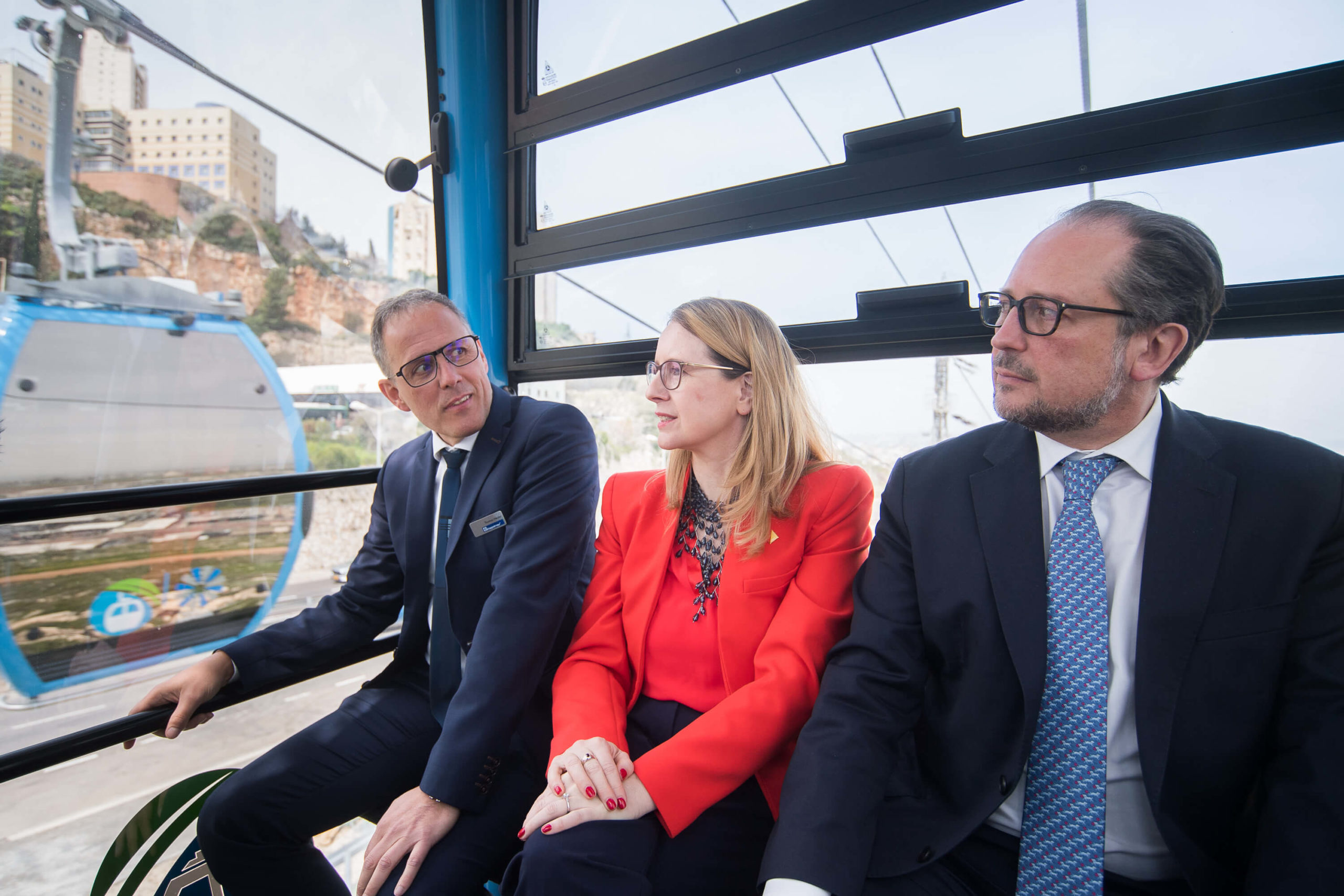
Transport hub for optimized passenger comfort
The base station of the gondola is part of the multimodal transport hub known as HaMiFratz. Local and regional buses, the Metronit bus rapid transit (BRT) system and the railroad all converge at this point. The HaMiFratz hub was modernized in 2018 with the aim of making operations more efficient and simplifying transfers for passengers. The ropeway is an integral part of the local transit system and represents a further step toward multimodal, barrier-free transportation in Haifa. This means that passengers can also use their public transport ticket to travel on the ropeway.
In addition to the multimodal transport facilities incorporating railroad, bus and ropeway, the HaMiFratz mobility hub offers passengers one of Haifa’s biggest shopping malls: the Lev Hamifratz Mall – also known as the Cinemall.
Highlight for architecture fans
As well as being the destination for around 18,000 students at the university and 15,600 students at the Technion plus staff, the university campus also attracts large numbers of architecture fans. The University’s Eshkol Tower was designed by the world-famous Brazilian architect Oscar Niemeyer in 1962. The new ropeway now makes it easier and more convenient to visit this building.
Urban ropeways in Haifa
Haifa was an early adopter of the ropeway as a means of public transport. The Carmelit–Haifa funicular was originally built in the 1950s and rebuilt by Garaventa in 2018 following a fire. It runs underground over its entire length and is therefore referred to as Haifa’s subway. The 1.8-kilometer installation serves a total of six stations and is also integrated into the urban transport network and ticketing system.
Minister of the Economy Schramböck and Foreign Minister Schallenberg on the new ropeway:
“As well as making a valuable contribution to the regional transport network, the new ropeway in Haifa is also an impressive example of the worldwide demand for the technological know-how of top Austrian companies. Roughly six out of every 10 euros of Austria’s economic output are generated abroad.
This is precisely where the Federal Government is placing the focus with our economic initiative ReFocus Austria, which is aimed at driving growth in Austria’s exports. This will play a pivotal role in attracting international investments, creating new jobs and strengthening Austria’s position as a business location, which will then maintain our economic prosperity and finance our welfare state,” says Foreign Minister Alexander Schallenberg.
Margarete Schramböck added: “Austrian exports are a success story. The new Doppelmayr ropeway in Haifa impressively demonstrates the success of our companies in international markets. Our exporters and products made in Austria are in demand worldwide. The export sector safeguards every second job in Austria and ensures economic prosperity. An active trade policy is a crucial driver for the development of an international business location like Austria.”
